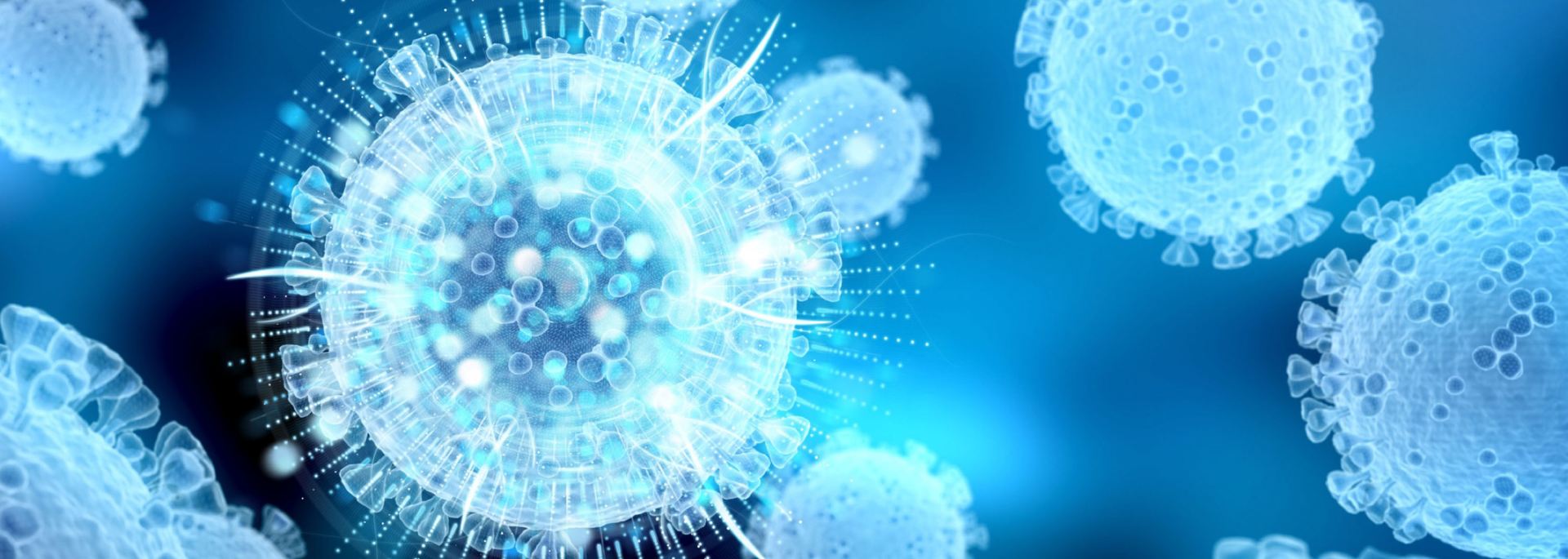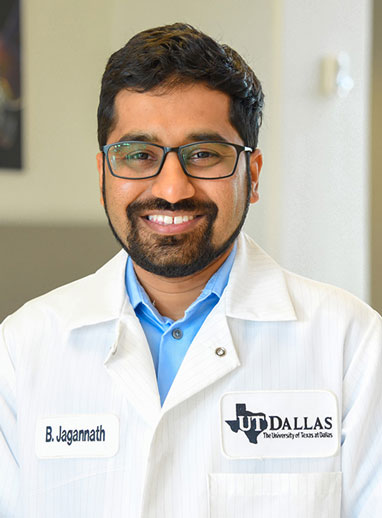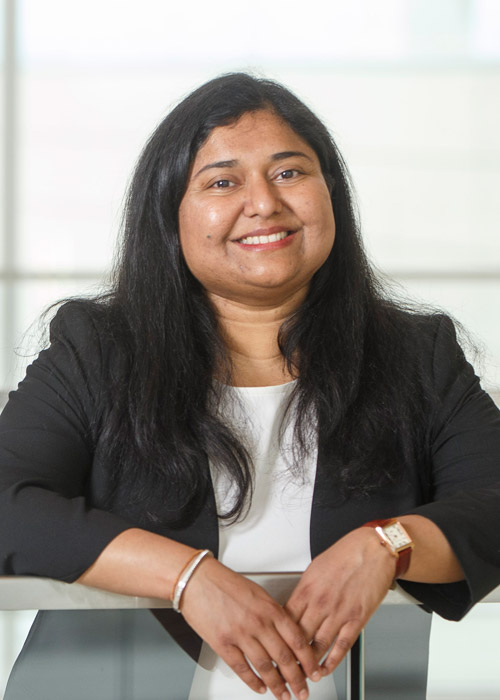
Baxter Honoree Found Early Inspiration to Improve Lives, Innovate

Badrinath Jagannath PhD’21 received a Baxter Young Investigator Award for his work to develop a biosensor for early detection of infectious diseases, including COVID-19 and the flu.
While growing up, Badrinath Jagannath PhD’21 had a friend who was diagnosed with Duchenne muscular dystrophy, a rare genetic disease that causes severe, progressive muscle degeneration.
“He lost complete mobility by the age of 14 as the disease progressed,” Jagannath said. “This was very disheartening for me. I thought about the need for assistive devices that could have helped improve his quality of life. This was one of my biggest motivations to pursue a career where I could provide engineering solutions to medical problems.”
Jagannath’s resolve led him to The University of Texas at Dallas, where he works as a research scientist after earning his PhD in biomedical engineering from the Erik Jonsson School of Engineering and Computer Science in December. Jagannath recently received a first-tier Baxter Young Investigator Award for his work on a sensor that can detect a cytokine storm, an immune system response that can serve as an early warning system for infectious diseases, including COVID-19 and the flu.
Jagannath is one of six top-tier U.S. recipients of the award, which recognizes outstanding graduate students and postdoctoral researchers for research applicable to the development of therapies and medical products that save and sustain patients’ lives.
“Our goal is to develop a noninvasive, wearable, real-time monitor that people can access from a smartphone app,” Jagannath said. “The biosensor aims to provide an early warning for infection so people can get tested and isolate if needed and to prevent infections from spreading.”
In a study published in the September print edition of Bioengineering & Translational Medicine, Jagannath and co-authors demonstrated the sensor’s effectiveness. The $3,000 Baxter Young Investigator Award will support his work to further develop and test the technology.

“Badri’s work on real-time infection monitoring using a wearable sensor is paradigm shifting because it can aid in presymptomatic reporting of biomarkers that alert patients of an impending infection. He is an exemplary bioengineer, a student who transcends disciplines to design technology to impact human health.“
Dr. Shalini Prasad
Professor and Head
Bioengineering
Cecil H. and Ida Green Professor
Systems Biology Science
After studying electronics and instrumentation engineering at Jawaharlal Nehru Technological University Hyderabad in India, Jagannath earned his master’s degree from Arizona State University. In 2016, he enrolled at UT Dallas to study with Prasad. Since then, he has published 18 studies in academic journals.
Jagannath’s personal experience continues to influence his work. The scientist said he one day hopes to develop sensor technology that can facilitate earlier detection of neuromuscular diseases, including muscular dystrophy, to honor his childhood friend who died of the disease at age 21.
He has worked to develop sensor technology for several types of diseases, including inflammatory bowel disease (IBD). He became inspired to focus on IBD after a relative was diagnosed with the chronic illness, which involves inflammation of the digestive tract.
“This was when I realized the importance of early detection and the need for continuous health-monitoring systems,” Jagannath said. “It further motivated me to pursue my research in the field of biomedical engineering. In a way, this is a dream come true and is of immense satisfaction as I am currently working on developing a wearable device that is aimed at early detection of an impending flare-up in IBD patients for better disease management.”
Prasad said she hopes Jagannath’s accomplishments can inspire future bioengineers.
“Badri is an exemplary bioengineer, a student who transcends disciplines to design technology to impact human health,” she said. “He started his undergraduate training as an electrical engineer and now is a bioengineer. He was an international student who came to UT Dallas to seize the opportunities the University offers toward making an impact.”